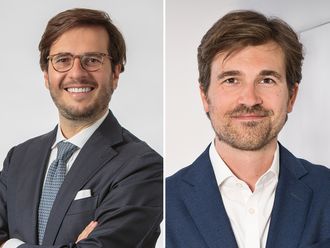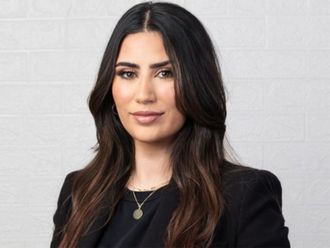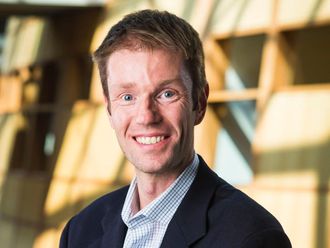On a pristine stretch of sand on a crystal clear bay here on Sporades Island (Greece), a mother carefully works with her son to craft a sandcastle with six pillars and fortified walls to withstand the rising tide of the Aegean Sea later in the afternoon. She would not lift the bucket for the next tower until she was certain that all was just right below.
It was a fitting analogy in today’s Greece. People are struggling to survive as a result of what many see today as the faulty architecture that was used to build the Eurozone.
After only 13 years as a member of the single currency and nearly half spent leaping from crisis to crisis, I could see first hand the wear and tear of economic depression while on holiday with the family during the peak of the European Union debt talks.
Alonissos recalls a Greece I knew three decades ago. It is not part of the globalised world. There’s no airport; it’s three hours by car to the eastern flank of the country and then another three hours by ferry to the pine-covered paradise.
But it does not mean those who chose a much simpler existence are not impacted by the tug of war between Brussels and Athens.
The people I spoke with over the week on the island chose to remain on a first-name basis. They were not eager to garner attention but share what can be described as “island wisdom” during the most challenging of times.
During our stay, locals could not take more than 60 euros a day from a bank machine. They all felt the impact of very nasty negotiations that dominated headlines on local television, which in turn led to last minute cancellations during the peak holiday period.
Tourism makes up a fifth of Greece’s economy but far more than that on hard-to-reach islands.
After spending the day looking after his beehives scattered on Alonissos, Dimitris sits in his small shop off the square in the old town. While he sold jars of organic honey, he defined Greece as a “colony of debt in the European Union”.
He was not shy highlighting what went wrong in Greece itself: corruption, a bloated state government and a lack of reform. He was not convinced that business practices will change in Greece despite the torturous, often nasty negotiations and what many view as the strong-arm tactics by Chancellor Angela Merkel in Germany.
In the bay near where my family and I were staying, one finds a tavern and stylish beach bar called Eleonas, meaning the olive grove in Greek. Nikos and his sons run the outside, while the matriarchs of the family ply their craft in the kitchen.
All natural ingredients, with vegetables grown on the island, make for a clean, simple Mediterranean menu with the daily catch from the Aegean at its core. This is Nikos’ family business, which picks up in the summer.
His “day job” if you will consists of being the business manager of the local government for the past three decades.
While we finish our dinner, he talked of a special programme developed to give summer employment to the youth from the mainland, where 50 per cent are without a job. He told us how he had to provide funds for the $20 ferry since young employees could not afford to do so.
Nikos hopes the worst is over as the young Prime Minister Alexis Tsipras formed a new cabinet after numerous defections. since he capitulated on the wishes of the Greek people to say “No” to a third bailout and more austerity.
That process left deep wounds even on this far removed island. “The problem now, as I see it also in my office, is that people are very divided,” said Nikos.
The administrator and restaurant owner is an unusual character in Greece. He showed little emotion and exudes a sense of calm at all times.
While mayors come and go on the island, he remains and he likes to pursue a consistent policy despite all the chaos in the country.
“If we want to restart the engine of the country quickly, we have to work together as a team,” he said.
On our final evening of four at his tavern (it was that good), Nikos invited a local musician to play Greek and international ballads. Akis kindly gave our daughters two CDs of his best work after a small tip.
A self-described street musician, Akis plays at three different venues on the island each summer. Unlike those who have struggled during this summer’s crisis, Akis appreciates what is before him — sand, sea, good fishing and his ability to play music.
“I don’t have a rich life, but a peaceful life. I don’t have to go to the bank and that’s peace.”
The writer is CNN’s Emerging Markets’ Editor.












